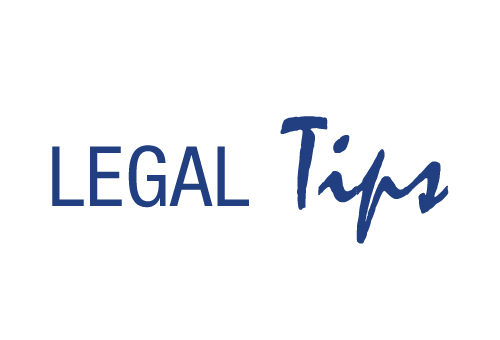Editor’s Note: This article is intended for information purposes only. Because state and municipal laws vary greatly, as do the circumstances of individual cases, readers are advised to contact an attorney for specific legal advice. © Scott C. Tips 2011
What started out as just an idea has now become reality. When I first heard in early July that the U.S. Food and Drug Administration (FDA) had just released its Draft Guidance for Industry: Dietary Supplements: New Dietary Ingredient Notifications and Related Issues, almost my first thought was that the watershed date of October 15, 1994, set in the Dietary Supplement Health and Education Act (DSHEA)—which defines as “new” any dietary ingredients introduced into the marketplace after that date and requires their notification to the FDA before sale—had to be changed. I even expressed that idea immediately to John Hathcock of the Council for Responsible Nutrition with whom I had been talking at the Codex Alimentarius Commission meeting in Geneva, Switzerland during that first week of July.
Well, now, through the National Health Federation (NHF) (www.thenhf.com) and its lobbyist Lee Bechtel in Washington, D.C., that reflexive thought has taken substance in the form of a new bill introduced last month into the House of Representatives by industry-friend Rep. Dan Burton (R-IN). Called the “Dietary Supplement Protection Act” (DSPA), it has been given bill number H.R.3380. In a nutshell, the DSPA moves the defining date of October 15, 1994, to a more realistic and recent date in early 2007. By doing so, it will encompass within that previous grandfathering clause all of the “new” dietary-supplement ingredients that have appeared in that 13-year interval and that would otherwise be subject to the onerous requirements of the FDA Guidance.
The Guidance Is Lethal to Us All
Last July, the FDA stunned supplement manufacturers with its proposed Guidance that would require all dietary ingredients introduced into the marketplace since 1994 to undergo drug-like safety testing prior to marketing. The tests could cost millions of dollars per each new ingredient, and that includes each variation on that ingredient too. These requirements would not make supplements any safer than they are today and would require supplement makers to lay aside 20 years of profits to conduct the tests. To make matters worse, tens of thousands of workers could lose their jobs as the supplement industry would be forced to remove products from store shelves.
While many of these dietary supplements have been on the market for over a decade without reported deaths or significant side effects, the FDA’s proposed new dietary ingredient guideline appears to be nothing more than an expensive paperwork exercise intended to eradicate many safe products from the marketplace.
Some have counseled compromise with the FDA over this Guidance, but each time we have compromised in the past on similar issues, we have always lost. The typical salami-slicing strategy of the FDA and those who oppose supplements succeeds, and both the industry and the consumer are boxed in by ever-more confining rules, regulations, and laws. Before long, we will have precious little elbow room to produce and buy those supplements that truly help us maintain our health. Besides, we do not have to compromise with a document that has no basis in law, thwarts the clearly stated intent of Congress when it passed DSHEA and is absolutely unnecessary, even counterproductive.
This Guidance directly threatens your business. By requiring very-expensive safety testing for many of the supplements that you manufacture, distribute, sell and stock on your shelves, it will guarantee that a high percentage of those products will not survive the process. They will either be priced beyond the reach of your customers or else be removed from store shelves and the marketplace in general because they were not “safety tested” to the FDA’s satisfaction. And we all know the FDA’s reputation for harshly applying safety rules to “dangerous” supplements while blissfully looking the other way as its drug-company overlords’ pharmaceuticals kill hundreds of thousands of Americans year in and year out.
H.R.3380 Is Not a Panacea
To be honest, Bill H.R.3380 is not a panacea for all of the problems found in the FDA’s draft Guidance. But then it was never meant to be. Instead, it is a politically expedient “salami slice for freedom” that will take care of our FDA problem for now. Later, the problem will need to be addressed again; but, it does buy us valuable time right now and it will set a precedent for future legislative action.
This is the most realistic and pragmatic approach to tackling a large part of this FDA usurpation of our health rights that would otherwise occur were its draft Guidance to be put into effect. The anti-supplement and anti-health forces have been salami-slicing their way into our rights for years now. It is about time that we turned that strategy right back on them in order to keep our health rights.
Supplements are Safe Beyond Belief
As I have been writing and saying for years, dietary supplements are exceptionally safe. Statistically, a person is more likely to die from a bee sting or a lightning strike than he or she is from taking dietary supplements.
Dr. Andrew Saul confirmed this viewpoint when he cogently wrote, “The 2003 Annual Report of the American Association of Poison Control Centers Toxic Exposures Surveillance System states that there have been only two deaths allegedly caused by vitamins. [see American Journal of Emergency Medicine, Vol. 22, No. 5, September 2004; www.aapcc.org/dnn/NPDSPoisonData/NPDSAnnualReports.aspx.] Almost half of all Americans take nutritional supplements every day, some 145,000,000 individual doses daily, for a total of over 53 billion doses annually. And from that, two alleged deaths? That is a product safety record without equal.” More recent figures simply confirm this safety record for supplements.
Compare this to pharmaceutical drugs, Dr. Saul continued, which even when properly prescribed and taken as directed, kill some 106,000 Americans each and every year. At over 2,000 deaths each week (and some doctors estimate the toll to be much higher), that is quite a death rate. (See L.L. Leape, “Error in Medicine,” Journal of the American Medical Association, 1994, 272:23 at 1851; L.L. Leape, “Institute of Medicine Medical Error Figures are not Exaggerated,” JAMA, 2000 Jul, 5;284(1):95–97.) Clearly, supplements and drugs are not even in the same class. And they should not be treated in the same way either, which is exactly what the draft FDA Guidance document wants to do for “new” dietary ingredients.
The Arguments for this Bill
The reasons to support this Bill and move the grandfathering date forward to 2007 are simple and to the point:
• As demonstrated above, supplements are safe; and new ingredients have continued that same track record of safety. There is no risk.
• The regulatory environment for dietary supplements is different today than it was in 1994, as now there are GMPs, adverse event reporting, and even the FDA Food Safety Modernization Act in place that regulate from the beginning supplement manufacturing in a way not done pre-1994. Ironically, the very legislative and regulatory measures put in place to burden the industry can now be used to justify lightening its regulatory burden.
• There is no cost to the Government in enacting this Bill. Indeed, it will save the Government many millions of dollars in unnecessary regulatory costs.
• It will preserve jobs in America that would otherwise be lost were the FDA Guidance to be put into effect.
• The Bill will ensure that the intent of Congress when passing DSHEA—that ”the right of access of consumers to safe dietary supplements is necessary in order to promote wellness”—is honored.
• In a time of economic crisis, this Bill will ensure that supplements remain affordable and within the reach of ordinary Americans, thereby lowering our national health-care costs as more citizens remain healthy and disease-free.
• It will also ensure that the innovation in dietary supplements unleashed by DSHEA in 1994 will continue and not be stifled.
Support This Bill
Whether you acknowledge it or not, your business is threatened by the FDA Guidance. This is not a “maybe” threat in some distant future. This is a very real threat right now. In my last column [WholeFoods Magazine, October 2011, “Save Your Supplements,” p. 53], I emphasized that supplements were threatened. That’s true—but it’s really much more than that. Your business, your present existence, is threatened! You need to take action now.
While the National Health Federation launched this Bill, there is no “ownership” to it. This is everyone’s Bill. It’s your Bill. It is your trade association’s Bill. It is a bill that anyone can adopt and promote as his, her, or its own because it will benefit us all. And when the Bill passes, let all of us, together, take credit for getting it passed.
So, today, not tomorrow, go to www.thenhf.com/DSPA and read the Bill for yourself and then contact your Congressional Representative and ask him or her to co-sponsor and support H.R.3380. Contact your trade organization, your friends, your family, your customers and ask them to do the same thing. Make as many copies of this article as you want, which you are free to do and distribute them far and wide, to every one of your customers and contacts. Those who want to help even more, contact me directly.
This is critical. This action is one that both industry and consumers can unite behind. And they must because it is necessary to save our supplements. And more viscerally to our industry, it is necessary to save our very livelihood. WF
A graduate of the University of California at Berkeley Law School, Scott C. Tips currently practices internationally, emphasizing Food-and-Drug law, business law and business litigation, trade practice, and international corporate formation and management. He has been involved in the nutrition field for more than three decades and may be reached at (415) 244-1813 or by e-mail at scott@rivieramail.com.
Published in WholeFoods Magazine, December 2011










